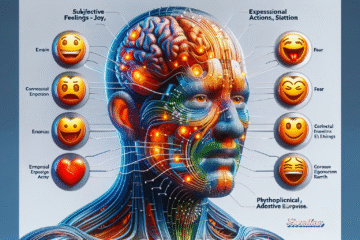Lesallan | 6/12/2025

Emotional Intelligence and Interpersonal Conflict Resolution: A Scholarly Examination
Lesallan Bostron
Ohio Christian University
COM3040 Conflict Resolution (ONL25SP4)
Professor Christina Oda
June 12, 2025
Emotional Intelligence and Interpersonal Conflict Resolution: A Scholarly Examination
Emotional intelligence (EI) has emerged as a vital construct in understanding and navigating the complexities of interpersonal relationships, particularly in the realm of conflict resolution. Bradberry (2019) conceptualizes emotional intelligence (EI) as the ability to perceive, understand, and manage emotions in oneself and others—a skill set that is indispensable for effective communication and problem-solving. Complementing this perspective, Hocker, Berry, and Wilmot (2022) offer an in-depth analysis of interpersonal conflict as a multifaceted process shaped by differences in expectations, values, power dynamics, and communication styles. Together, these works underscore the potential of EI to transform conflict from a chaotic interruption into a constructive opportunity for growth.
According to Bradberry (2019), emotional intelligence (EI) rests on four cornerstone components. Self-awareness involves recognizing and accurately naming one’s internal emotional states, a prerequisite for informed self-reflection and behavioral adjustment. Self-management extends this capacity by enabling individuals to regulate their emotions, thereby ensuring that responses remain measured and appropriate despite external pressures. Social awareness is the ability to perceive, understand, and empathize with the emotional experiences of others, which facilitates a deep comprehension of the subtle cues inherent in interpersonal communications. Relationship management synthesizes these elements by applying emotional insights to foster constructive interactions and resolve disagreements in a mutually amicable manner. Each of these components contributes to a comprehensive emotional framework that enhances both personal well-being and interpersonal effectiveness (Bradberry, 2019).
The integration of these EI components is particularly critical in the context of conflict resolution. When individuals exhibit self-awareness, they become attuned to early signs of tension, enabling preemptive adjustments that mitigate the escalation of disputes. Self-management further empowers them to control reactive impulses, thus preserving the clarity needed for productive dialogue. Social awareness enriches this process by allowing for the recognition of others’ emotional states, ensuring that underlying issues such as miscommunications or unmet needs are addressed rather than overlooked. The insights provided by relationship management then facilitate solutions grounded in collaboration and mutual respect. Hocker et al. (2022) emphasize that effective conflict resolution requires an exploration of these underlying dynamics, highlighting that conflicts—though inherently challenging—can serve as catalysts for meaningful organizational and personal change when navigated with emotional intelligence.
A practical illustration of these principles occurred during a critical team meeting in which divergent opinions on project priorities led to an escalating impasse. Recognizing the signs of mounting frustration and defensiveness, I paused the meeting to encourage each team member to articulate their feelings—terms such as “frustration” and “overwhelm” emerged as common descriptors. By actively reflecting these emotions and steering the discussion toward our shared objectives, I effectively employed self-management and social awareness. This intervention not only de-escalated the immediate conflict but also redirected the team’s focus toward collaborative problem-solving. The incident serves as a testament to the practical efficacy of integrating EI skills with the conflict theories delineated by Hocker et al. (2022), thereby demonstrating that even entrenched disputes can be transformed into opportunities for constructive dialogue and enhanced mutual understanding.
In conclusion, the synthesis of Bradberry’s (2019) framework of emotional intelligence with Hocker et al.’s (2022) comprehensive view of interpersonal conflict illuminates a promising pathway for resolving disputes in both personal and professional contexts. The four hallmarks of self-awareness, self-management, social awareness, and relationship management—not only underpin effective individual coping but also facilitate the transformation of conflict into opportunities for growth and relationship strengthening. As research and practice continue to advance, further exploration into the interplay between EI and conflict resolution will undoubtedly contribute to developing more nuanced and effective strategies for managing the inherent complexities of human interactions.
References:
Bradberry, T. (2019, October 8). Emotional intelligence – EQ. Forbes.
Hocker, J. L., Berry, K., & Wilmot, W. (2022). Interpersonal conflict (11th ed.). McGraw-Hill
LLC.



0 Comments